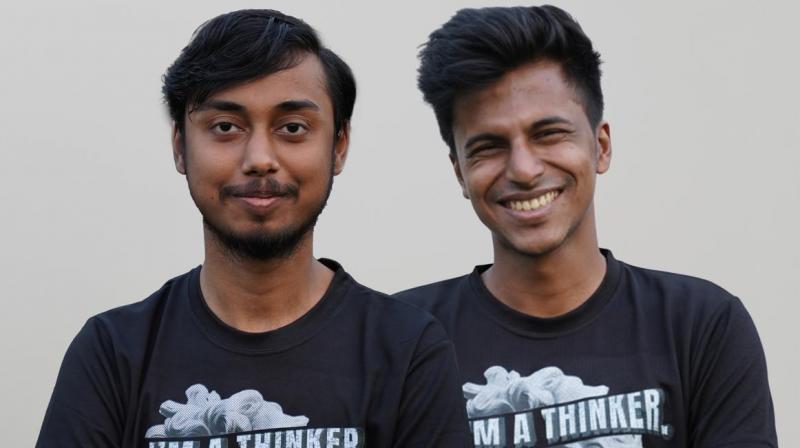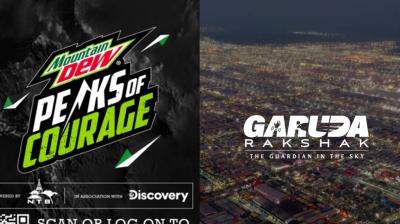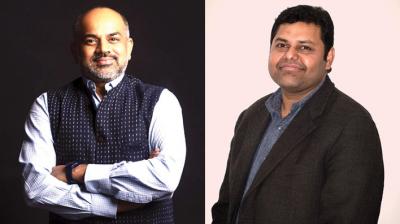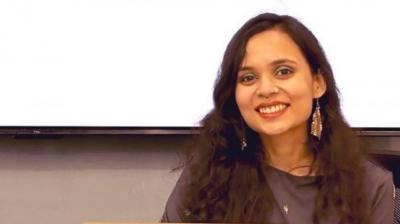Binge Labs has launched The Founder’s Playbook, a resource aimed at helping startup founders build enduring digital brands rooted in clarity, conviction, and consistency.
The playbook draws on Binge Labs’ experience supporting founders across fintech, consumer, SaaS, and healthcare sectors, tackling recurring challenges such as low content recall, founder-brand dissonance, performance-first thinking, and reactive storytelling.
Grounded in principles like pattern recognition and first-principles thinking, the playbook intends to offer practical guidance on storytelling structure, tone, platform choice, AI adoption, and long-term trust building. It positions personal branding not as a vanity project, but as a leadership skill. Founders are encouraged to prioritise consistency over virality, conviction over mimicry, and strategy over aesthetics. Even without going viral, leaders following the framework see improvements in investor confidence, hiring, and customer loyalty.
Before the launch, we caught up with Aryan Anurag, co-founder, Binge Labs, to understand the thinking behind the playbook and how individuals and companies can start their personal branding journey.
Edited excerpts:
What gap did you see in the market that led to the creation of The Founder’s Playbook?
The gap was massive. But to understand it, you have to look at the market trend. Post-covid, and especially after Shark Tank, once those five sharks built their personal brands, there was a huge surge in people working on their own personal branding. Audiences responded well because they got to see content directly from founders or influencers building something real.
When such a market is exploding, and considering we’ve been pioneers of personal branding in India, both in terms of clients and results, we realised something critical was missing. Despite the growing ecosystem, there was no central repository of content that anyone could refer to if they wanted to build or scale a personal brand. Sure, information exists all over the internet, but it’s scattered, incomplete, and often riddled with misinformation. Personal branding has also been overcomplicated with jargon, algorithms, and trends.
We fundamentally believe content creation should be grounded in first principles. If you understand the basics of how to think about your audience, how to break things down to fundamentals, it becomes much easier. That’s why we created this playbook. The goal isn’t to monetise it. It’s free, widely available online, with a few hard copies sent to select people. The purpose is simple: to create real impact.
Does the playbook include strategies from global founders? Can Indian entrepreneurs adapt effectively?
It’s not just about founders. At its core, this is about expert individuals who’ve achieved a lot and have valuable insights to share. Founders are just one piece of the puzzle. It’s also angel investors, doctors, coaches, business mentors, and people running VC firms. They make up a significant part, but the scope goes far beyond them.
We’ve referenced a lot of our own case studies in the book. We work exclusively with Indian founders because our mission is to strengthen the Indian startup ecosystem. In the West, personal branding is already a well-established phenomenon. In India, it’s still very nascent. That’s why all the case studies in the book feature Indian clients who’ve successfully built strong personal brands with us.
Many founders equate personal branding with self-promotion. How do you define it differently?
There’s a fundamental difference between branding and self-promotion. With self-promotion, it’s all: 'I am X, I do Y, I make Z.' It’s focused entirely on an individual. Branding or social media branding is more about showing the value one can bring to others: what you can do for them, how you can make a difference in their lives.
Yes, branding still involves self-promotion, but done in a way that’s authentic, sustainable, and long-term. It’s not about shouting about oneself; it’s about demonstrating impact.
What’s the biggest mistake early-stage founders make when it comes to building their personal brand?
Many people don’t have a purpose. One cannot build a personal brand without one. At Binge Labs, we take very few clients because we know not everyone is ready. The first and most critical prerequisite is understanding your purpose.
When someone comes to us and says, “I want to build a personal brand,” our first question is always: Why? If the answer isn’t crystal clear, the personal brand won’t work. People either think it sounds cool, or they have FOMO, or they hope it will drive immediate sales. That’s not the purpose. One’s purpose needs to be bigger; it's about the impact they want to create and the change they want to bring to their audience. Why should people pay attention to you? Purpose is, without question, the most important foundation of a personal brand.
Where should founders invest their time, especially with LinkedIn and X being so popular? Is content saturation an issue?
I don’t believe in saturation. As long as people are waking up, opening their phones, and spending hours a day on social media, there’s always room. Saturation implies people have stopped engaging, but that’s not happening. In fact, the number of social media users is growing every day.
What happens is evolution. Certain content formats may lose effectiveness over time. Something that works today might not work six months from now. The pace of evolution might feel fast, giving the impression of saturation in a niche, but it’s not true saturation, because people still want content. Yes, the space is competitive, and it’s getting tougher to stand out, but there’s always an opportunity.
The playbook emphasises conviction-led storytelling over chasing virality. Why?
It’s not about choosing one or the other; it’s both. Chasing virality isn’t wrong; we just need to set realistic expectations. Not every video will go viral, not immediately, and not all at once. Virality happens gradually, especially in niche categories.
Set achievable goals. For example, aim for at least one viral video a month, while other videos grow steadily. Upload 14–15 videos a month, one might hit a million views, while the rest see incremental growth. Over time, this combination of occasional virality and steady growth, the 10x spike is what defines a strong content identity.
How should founders balance building their personal brand with their company’s brand?
It depends on the category, but at a fundamental level, if one wants to associate their personal brand with their company, they shouldn’t push their company name everywhere or be salesy too early. Selling is important, but timing matters. Focus on value and education first. Share learnings, insights, and experiences. People will naturally connect the dots.
Look at Nikhil Kamath. He shares interesting content without constantly saying, 'please invest' or 'use this platform.' That’s the point: give value first, and selling happens organically. Share your journey—how you’re building your business, challenges, and decisions. For example, Cloud Plus, a B2B EdTech company we worked with, shared stories about mishaps and challenges. People understood their values and journey, and the company naturally got associated with the founder.
AI is becoming a default content tool. How can founders leverage it without losing authenticity?
Authenticity isn’t taken away by tools; one’s opinions shape it. One of our clients, Arjun Vaidya, has a lot of his content from ideation to voice, and it is AI-generated. Some reels hit 5–10 million views. Was it authentic? Absolutely. The ideas and opinions were his. AI accelerates and refines one’s process; it doesn’t replace their insights. Preserve authenticity by holding on to your opinions and using AI to enhance, not substitute them.
Visibility comes with scrutiny. How should founders deal with criticism?
First, have a team that understands the pulse of your space. A seasoned team knows which topics might trigger debates. Second, even with a great team, no one can predict everything. Be thick-skinned. Criticism is inevitable.
The key is to stay authentic, own your voice, and engage openly. People are more forgiving than you think, and authenticity goes a long way in earning trust.
If a first-time founder wanted to start tomorrow, what should they do on Day One?
First, find your purpose. Ask yourself why you want to do this. Once that’s clear, understand the category you want to create content in. For example, if it’s angel investing, explore your chosen platform and identify the top 20–50 creators in that space.
Next comes pattern recognition, a critical skill for content creation. Look at the top-performing posts from these creators, identify patterns in topics, style, hooks, visuals, and format. Adapt these patterns with your own style and start creating content. Once the purpose is clear, pattern recognition is the first real step toward building a content strategy.












